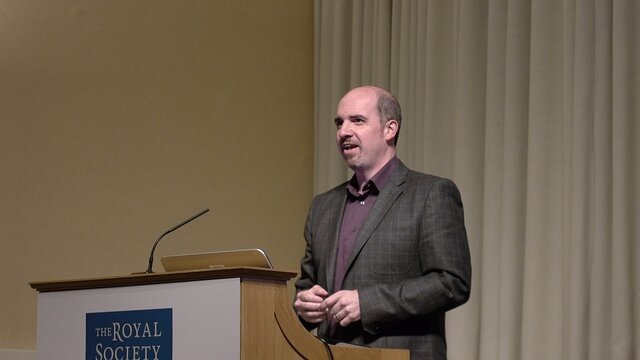Thom Brooks is an award winning lecturer receiving the Lecturer of the Year Award in his Faculty from Durham Students’ Union in 2014, the inaugural Law Teacher of the Year Award from Durham Law School in 2015, Durham University’s Excellence in Learning and Teaching Award in 2016, Inspiring Academic Award runner-up from Durham Students’ Union in 2015 and shortlisted for the inaugural Law Teacher of the Year Award from the Northern Law Awards in 2015. In 2022, Brooks became a Principal Fellow (PFHEA) of Advance HE, the highest recognition of attainment against the UK Professional Standards Framework for teaching and learning in higher education. He is currently the Principal of Collingwood College at Durham University.
Taught areas:
Criminal Law
Introduction to the criminal justice system; the elements of criminal liability; modes of participation; inchoate offences; defences; and the elements of selected crimes, including murder, theft, criminal damage and sex offences. Issues range from the theoretical foundations of the criminal law and criminal responsibility to examining various offences and defences.
Evidence and Criminal Process
Topics covered include how objectives of criminal process are defined and achieved, the rules governing criminal procedure and evidence and consideration of wider issues in human rights and international law. Part 1: Pre-Trial Process; Part 2: The Criminal Trial (including concept of proof, right to a fair trial, role of the jury); Part 3: Sentencing (including sentencing guidelines, influence of Model Penal Code, sentencing objectives and weighing multiple penal purposes in setting sentences, restorative justice and alternatives to imprisonment, including community sentences).
Jurisprudence
Introduction to the following topics in jurisprudence and the philosophy law: (1) theories about law, including natural law, legal positivism, the pure theory of law, legal pragmatism and legal realism; (2) practical reasoning and the law; (3) key debates about the law, including the concepts of authority, legality and rights; and (4) case studies to illustrate the relation between theory and practice drawn from current legal issues. Engages with a combination of classic and mostly contemporary contributions.
Law, Public Policy & Advocacy
Law evolves. This module explores the social foundations of legal change and effective public advocacy to understand the processes of legal change and its wider social context. General lectures will introduce students to the relationship between law, society and social science; effective public advocacy; and strategic communication. The module will provide a unique opportunity for students to become engaged with the Law School’s research centres and groups as well as to develop public advocacy and socio-legal research skills to enhance student knowledge of legal sources and develop their ability to research the law at an advanced level. Students learn how to examine any issue in law and public policy – whether public law or private law – in order to advocate or challenge. READ MORE (links and resources)
Punishment
This module introduces students to theories of punishment and their application in sentencing. The module explores general theories based around single penal purposes as well as hybrid and unified theories combining multiple penal purposes. Seminars will discuss some of the leading figures and their key contributions. The module will be seminar-based. Each will be 2-hours with an introduction to a topic followed by discussion. The seminars will be organised thematically exploring both consequentialist and non-consequentialist approaches. Students are expected to contribute to discussions with seminar questions provided in advance that will be covered in each teaching session. Seminars will consider both the variety of theoretical approaches found in the literature, but also the variety of ways they are presented in practice.
Political Philosophy
Modules have covered historical and contemporary topics. In Ancient Political Thought, I covered lectures and seminars primarily on Plato and Aristotle. In Hobbes to Marx, I taught canonical figures in modern political thought including Hobbes, Locke, Hume, Rousseau and Marx. In Kant and Hegel, I taught Kant on freedom in First and Second Critiques, the Metaphysics of Morals and its Groundwork, his political essays (including on lying) and Perpetual Peace. I taught parts of Hegel’s logic, system and Phenomenology of Spirit, but mainly the Philosophy of Right and political essays (including on the English Reform Bill). On contemporary topics, I taught Rawls using Justice as Fairness as the main text supplemented by A Theory of Justice and Political Fairness before turning to critiques by Nozick, Sen, Nussbaum, Parekh and others. In Contemporary Political Philosophy, I covered topics including equality, justice, democracy, feminism, multiculturalism and postmodernism. In Global Justice, I cover topics in my The Global Justice Reader, including sovereignty, nationalism, just war, climate change, human rights, feminism and cosmopolitanism.
Student feedback:
‘Thom Brooks is an absolute asset to the Law School. He is unfailingly enthusiastic and always endeavours to explain what at times can be convoluted ideas in as straightforward yet in-depth a manner as possible. He is fantastic’.
‘The “Punishment” module has been the most engaging and enjoyable module that I have experienced in my three years at law school. Thom is incredibly passionate about teaching, teaches in an interactive manner, and navigates sensitive subjects within the course incredibly well…Thank you Thom for your incredible teaching and authenticity!’
‘Wonderful module led by a wonderful academic. This module is clearly taught and assessed. The quality and rate of return of feedback from assessments was outstanding and it definitely makes you feel like you were Dr Brooks’s top priority. The lectures were engaging and made you want to learn more about the area’.
‘Amazing module leader. Allowed me to question things a lot more, and reason more about law’.
‘It has been the best module I have taken during my time at Durham’.
‘Such as fun module which I wish I had been able to take sooner…The highlight of my Tuesday mornings’.
‘This has genuinely been one of the most useful and stimulating modules of this year. I have been able to exceed my own personal academic targets and have thoroughly enjoyed learning practical oral advocacy skills that will help in my career. The best aspect of this module is Prof Brooks, who cannot do enough to help students. The guest lecturers also added an extra element of expertise and interest. A great and very different module’.
‘Professor Thom Brooks has significantly enhanced the learning experience…His engaging and intellectually stimulating seminars foster an extremely positive learning environment. Furthermore, his accessibility and willingness to provide support during his office hours have been invaluable’.
‘Dr Brooks’s use of examples and illustrations—none of the theories were taught in a void; rather he gave excellent real life examples which makde everything much more useful and relevant’.
‘You can tell Prof Brooks put a lot of work into making the module interesting and relevant, and he has achieved this’.
‘Thom is so passionate about this module, his enthusiasm really rubs off on everyone else’.
‘Thom Brooks truly has a passion for the subject and really delivers great seminars that are thought provoking and enjoyable’.
‘I really feel like for one of the first times…my interest in research was really, really encouraged, and being able to learn from someone who has such a depth and breadth of knowledge on the subject has been inspirational’.
‘The way the summative assessment would be assessed could not have been made clearer. I think it is fantastic that on the law degree at Durham it is possible to study a module which is concerned with the shaping of future legal policy and I feel very privileged to have been taught by someone as capable as Professor Brooks’.
‘The feedback was not only quicker than any other module I have taken, but more detailed. Professor Brooks is regularly visited by students yet ensures that the quality of his feedback, and office hours more generally, is of a high standard. More importantly, an atmosphere of interest has been cultivated that has turned this easily into one of the best modules I have taken during my degree’.
‘The module has dramatically increased my self-confidence in public speaking and taught me a lot of useful tips’.
‘The organisation and structure of the module is unrivalled – very clear and comprehensive’.
‘The topics we studied engaged us with issues that were constantly changing throughout the course, making research an extremely enjoyable process’.
Peer observations of his teaching:
‘In 16 years of Higher Education, including six years as a student and ten years as a lecturer, this was one of the best taught sessions I have witnessed. Dr Brooks is an outstanding lecturer and possesses excellent teaching skills’.
‘Professor Brooks is an excellent lecturer—lively, engaged and very popular among the student body. This lecture was compelling, I learned a lot, and time passed very quickly’.
‘Legal Frontiers is a highly innovative course that draws on research from a range of disciplines and is also of significant practical importance to Law students. Despite the complexities inherent in such a novel module, Professor Brooks ensures both a highly effective delivery of the material and an enthusiastic student response’.




